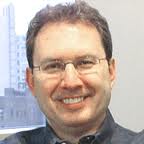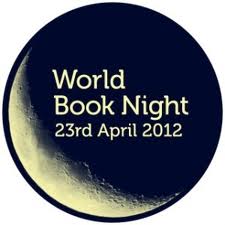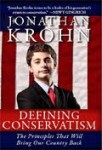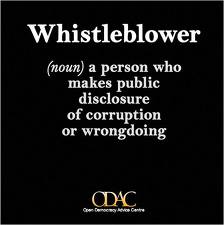Gone Fishin’
I am away from my desk this week and next on a combined train and road trip with my family. I will be posting entries from time to time. Until later then, I hope you’re having a nice summer, and look for me later in this space.
I am away from my desk this week and next on a combined train and road trip with my family. I will be posting entries from time to time. Until later then, I hope you’re having a nice summer, and look for me later in this space.
 #FridayReads, July 27–Two Lives, Vikram Seth’s fascinating family chronicle of the singular marriage between his Indian uncle, Shanti–an improbable, one-armed dentist–and his German-Jewish aunt, Henny Caro, a mixed couple who managed to build a life together despite the difficulties imposed by circumstance and society, amid WWII and the Holocaust. Seth begins the narrative near the end of their lives, in the 1980s, and then works his way forward and back in time, employing interviews he conducted with Shanti and documentary materials he discovers (letters, photos, school papers, etc.). This is a remarkable book, published in 2005.
#FridayReads, July 27–Two Lives, Vikram Seth’s fascinating family chronicle of the singular marriage between his Indian uncle, Shanti–an improbable, one-armed dentist–and his German-Jewish aunt, Henny Caro, a mixed couple who managed to build a life together despite the difficulties imposed by circumstance and society, amid WWII and the Holocaust. Seth begins the narrative near the end of their lives, in the 1980s, and then works his way forward and back in time, employing interviews he conducted with Shanti and documentary materials he discovers (letters, photos, school papers, etc.). This is a remarkable book, published in 2005.
N.B.: I first read and enjoyed Vikram Seth’s work years ago, when I read and at Undercover Books sold his debut, a brilliant travelogue about China and Tibet, From Heaven Lake. He went on to write a novel in verse, The Golden Gate, inspired he explains in Two Lives, by Pushkin’s Eugene Onegin. He is an inventive writer, who seems to never repeat himself.
Happy to see news reported in Shelf Awareness, that World Book Night, which I had recently written about in this post when I bumped into WBN director Carl Lennertz (pictured below), is proceeding with plans for Spring 2013, to give away tens of thousands of copies of books worldwide in a unique extravaganza of social reading, as was done by the organization and thousands of volunteers on April 23, 2012. I don’t see an exact date yet for the 2013 giveaway, but will report it on this blog as soon as I get that info.
 Update: It will be April 23, 2013, same as the one this past year.
Update: It will be April 23, 2013, same as the one this past year.
I had a meeting yesterday morning to present the excellent Web platform of my client Speakerfile, which I often tell people is like eHarmony for the conference industry, matching up event planners with authors who do public speaking. My meeting was with Gail Kump, Director of Membership Marketing for the Association of American Publishers (AAP). It was a fitting meeting, since it’d been Gail who’d referred Peter Evans, Speakerfile CEO, to me during the Digital Book World conference last winter. It is thanks to her that I’m working with them now. I’ve known Gail for a few years and we had a good talk, with each of us seeing ahead to many ways that the AAP and Speakerfile can work together. After sharing our ideas and swapping names of new contacts, I thanked Gail for her time and our meeting ended. Rather than immediately leaving the cool and pleasant AAP offices, I decided I’d sit on the comfortable couch in their lobby and do some work on my IPad and make a few phone calls before heading out to my next Manhattan meeting.
After a productive half-hour, I packed up my kit and prepared to leave. But first, peering back into the conference room where Gail and I had met, I noticed a familiar figure seated at a table. It looked like longtime book biz friend Carl Lennertz of World Book Night. Walking back that way, sure enough, it was him. Voicing a surprised “hello” greeting, I greeted Carl and we shared a few minutes of conversation. I learned that he and a colleague there with him, Laura, were assembling results of the enormous book giveaway they’d engineered this past April, when 23,000,000 copies of thirty different books were handed out gratis in North America, Ireland, and Britain. The non-profit program’s motto is “Spreading the love of reading, person to person.” The titles included Just Kids by Patti Smith, The Glass Castle by Jeanette Walls, and I Know Why the Caged Bird Sings by Maya Angelou. Carl and Laura showed me the Manhattan phone directory-sized bound volume that covers the myriad international locations where volunteers gave away books, with maps, charts, graphs, and narrative summaries of volunteer reports. Carl mentioned it will be made available as an ebook. I told them I’ll be eager to learn more about World Book Night’s plans for 2013.
 It made for a pleasant morning, seeing Gail and Carl, and meeting Laura. I hope to see them again soon!
It made for a pleasant morning, seeing Gail and Carl, and meeting Laura. I hope to see them again soon!
Day Later Update: Jonathan Krohn went on Last Word w/Lawrence O’Donnell Monday night and did a great job explaining the evolution of his political views over the past few years. He’s a very mature 17-year old and I can’t help being a fan of his, and admiring his transformation. You can watch it via this link.
—
Late Afternoon Update: After I tweeted out my blog post about Jonathan Krohn I heard from him, and the Twitter exchange we shared is below. I must say I admire his candor and his broad-mindedness in continuing to quest for a political philosophy that suits him. For proper sequence, the tweets should be read from top to bottom.
Onetime young favorite of the conservative movement, Jonathan Krohn, now 17, has largely disowned the doctrinaire ideological positions he seemed to favor at age 13, when he gave a widely covered speech at the Conservative Political Action Conference. Politico‘s Patrick Gavin has the story on Krohn’s transformation into a gay marriage-favoring, healthcare-supporer who would probably vote to re-elect President Obama voter, if he were of age in November. From Gavin’s article, partly in Krohn’s own words,
 Soon after the speech and all the coverage Krohn garnered, publisher Roger Cooper of Vanguard Press signed him up for a book. Roger, for whom I’ve edited manuscripts, asked if I would be interested in working with Krohn and editing his book. I had seen the speech, which I watched it with my own son Ewan, who’s a year younger than Krohn. Ewan found his beliefs and his celebrity, weird and unappealing. Though committed to the idea that every author has a right to tell his story, I declined to make a bid for the editorial assignment, largely because I didn’t want to work on political material I found inimical to my own or Ewan’s views; nor did I anticipate I could have a vigorous exchange of ideas with the smug boy I’d seen on C-Span. He seemed so convinced of his ideological positions, I just didn’t relish the thought of working with someone like him. The weird thing for Krohn now is that he’s got this unenviable Youtube and Internet history that he can’t escape, and which he’s already tired of dealing with, and being forced to explain to people. He’ll soon be going to NYU where he plans to study philosophy and filmmaking. The last word in the story is from Krohn:
Soon after the speech and all the coverage Krohn garnered, publisher Roger Cooper of Vanguard Press signed him up for a book. Roger, for whom I’ve edited manuscripts, asked if I would be interested in working with Krohn and editing his book. I had seen the speech, which I watched it with my own son Ewan, who’s a year younger than Krohn. Ewan found his beliefs and his celebrity, weird and unappealing. Though committed to the idea that every author has a right to tell his story, I declined to make a bid for the editorial assignment, largely because I didn’t want to work on political material I found inimical to my own or Ewan’s views; nor did I anticipate I could have a vigorous exchange of ideas with the smug boy I’d seen on C-Span. He seemed so convinced of his ideological positions, I just didn’t relish the thought of working with someone like him. The weird thing for Krohn now is that he’s got this unenviable Youtube and Internet history that he can’t escape, and which he’s already tired of dealing with, and being forced to explain to people. He’ll soon be going to NYU where he plans to study philosophy and filmmaking. The last word in the story is from Krohn:
 Neal Maillet, editorial director of Berrett-Koehler Publishers, has published a good opinion piece in Publishing Perspectives on what he sees as the imperative of publishing books by whistleblowers, and the dynamics that prevail when working with these authors and their books. In 2004 Berrett-Koehler published the breakthrough book on vulture capitalism, Confessions of an Economic Hitman, a mega-hit by John Perkins that was licensed to Plume for trade paperback for whom it was also a bestseller. More recently, he writes that B-K has published Confessions of a Microfinance Heretic, on the little-known darker side of what we like to think of as progressive measures to facilitate economic progress in the developing world.
Neal Maillet, editorial director of Berrett-Koehler Publishers, has published a good opinion piece in Publishing Perspectives on what he sees as the imperative of publishing books by whistleblowers, and the dynamics that prevail when working with these authors and their books. In 2004 Berrett-Koehler published the breakthrough book on vulture capitalism, Confessions of an Economic Hitman, a mega-hit by John Perkins that was licensed to Plume for trade paperback for whom it was also a bestseller. More recently, he writes that B-K has published Confessions of a Microfinance Heretic, on the little-known darker side of what we like to think of as progressive measures to facilitate economic progress in the developing world.
For my part, when I describe the imperatives and mandates that impel my personal publishing choices I have long placed “whistleblowers, truthtellers, muckrakers, and revisionist historians” highest on my list, and refer to this on the two business-oriented pages at the top of this website, Philip Turner Book Productions and Philip Turner. Quoting from the latter page, I’ve written “As an editor and publisher I have always felt impelled to publish books by and about singular witnesses–whistleblowers, truthellers, muckrakers, revisionist historians–people who’ve passed through some crucible of experience that’s left them with elevated author-ity, and the only person who could write the book in question, or about whom it could be written. Whether told in the first person by an author who has passed through some crucible of experience that leaves him or her uniquely qualified to tell the tale or in the third person by a reporter or scholar who has pursued a story or historical episode with single-minded passion, I am devoted to publishing imperative nonfiction, books that really matter in people’s lives.”
My definition of an imperative book is not limited to books by corporate and government whistleblowers, though it certainly includes them. The list of relevant books I’ve acquired and/or published over the past decade and a half includes these ten titles:
1) DEAD RUN: The Shocking Story of Dennis Stockton and Life on Death Row in America (1999), a nonfiction narrative by reporters Joe Jackson and Bill Burke with an Introduction by William Styron, chronicling an innocent man on Death Row in Virginia and the only mass escape from Death Row in U.S. history. The condemned convict, Dennis Stockton, wasn’t among the escapees, but he kept a whistleblowing diary detailing corruption in the penitentiary that he later with the reporters;
2) IBM & THE HOLOCAUST: The Strategic Alliance Between Nazi Germany and America’s Most Powerful Corporation (2001), an investigative tour de force by Edwin Black showing how one of the world’s most successful technology companies lent its technology to the Third Reich’s killing machinery;
3) THE WOMAN WHO WOULDN’T TALK: Why I Refused to Testify Against the Clintons and What I Learned in Jail (2002) by Susan MacDougal, a New York Times bestseller. Susan served 18 months in jail for civil contempt when she wouldn’t give Special Prosecutor Kenneth Starr the testimony he wanted from her.
4) THE POLITICS OF TRUTH: Inside the Lies that Put the White House on Trial and Betrayed My Wife’s CIA Identity (2004) by Ambassador Joseph Wilson, which later became the basis in part for the film, “Fair Game,” a New York Times and Publishers Weekly bestseller;
5) AHMAD’S WAR, AHMAD’S PEACE: Surviving Under Saddam, Dying in the New Iraq (2005) by Michael Goldfarb. A longtime NPR correspondent, this is Goldfarb’s tribute to Kurd Ahmad Shawkat, his translator during the U.S. invasion of Iraq, who started a newspaper in the months after Saddam’s fall, only to be assassinated for his editorials critical of intolerance. A New York Times Notable Book.
To the books by these authors, I would also add my writers, the late Edward Robb Ellis, the most prolific diarist in the history of American letters, and 100-year oldRuth Gruber, award-winning photojournalist–each of them singular eyewitnesses to history. Over the years I have published four and six books by them, respectively.
Among my professional roles nowadays is that of independent editor and consultant to authors on book development in which I continue seeking out unique individuals with stories like these to tell. That’s also why I enjoy working with Speakerfile, the company that connects conference organizers with authors who do public speaking. Thanks to Neal Maillett and Berrett-Koehler Publishers for reminding me and all readers of the vital role publishers play in helping us hear the voices of whistleblowers and truthtellers. H/t to Mike Shatzkin for alerting me to Mr. Maillett’s article. Also, thanks to the Open Democracy Action Center (ODAC) for use of their whistleblower graphic.
Please click through to the complete post to read about the last five books from the above list and see many of the book jackets.
We can hardly believe that on the eve of the Supreme Court ruling on the Affordable Care Act, Kyle’s had to draft a letter to the New York State Superintendent of Financial Services about the 2013 rate increase requested by United Healthcare, our health insurer, which I’m now adding to.
I don’t know what the Court ruling will be when it’s announced tomorrow morning at 10:00 AM, but I do know the system sucks when a CEO can make money like that. There is an insidious dynamic at work here: Hemlsey’s compensation and the rate increase request are diabolically inter-related–he makes more money when the company is more profitable, and the company is more profitable the more they charge their policyholders.
We’ll finish the letter tomorrow and mail it off to Albany, by which time we’ll know how the Court has ruled. It’s going to an interesting, historic, stressful day.
In early September 2010, I saw an announcement that Ambassador Joseph Wilson–whose book The Politics of Truth: Inside the Lies that Led to War and Betrayed My Wife’s CIA Identity, I had edited and published with him in 2004–would be appearing in a September 16 forum at the New York Times Center to mark the 40th anniversary of the NYT‘s Op-Ed page, which would be observed with a special section of the paper on Sunday, September 25. The moderator of this event, Op-Ed page editor at the time David Shipley, had invited Joe because his July 6 2003 op-ed What I Didn’t Find in Africa had been one of the most historically significant columns the newspaper published that decade, leading to the outing of Joe’s wife Valerie Plame as a CIA official and years of Bush administration denials that they had doctored the intelligence that fueled their claims about Iraqi WMDs.
I got a hold of Joe and he invited me to be his guest that evening. We hadn’t seen each other in a couple years, and so met an hour beforehand to catch each other up on our lives, after which we entered the green room just off the stage at the Times Center. There Joe generously introduced me as his editor and publisher to the other panelists–Roy Blount Jr., Garrison Keillor, Anna Deavere Smith, and Nora Ephron. They all seemed genuinely interested in one another, and conversed briefly among themselves before going out on stage. Blount was funny, in a low-key way, Keillor was diffident and the only one who wasn’t talkative, Smith told stories about her one-woman shows, and Ephron was funny and self-deprecating. I went out and talk a seat in the auditorium. Once on stage, Shipley asked each of them to speak about how they came to write their Op-Ed. Ephron spoke about her stint as a White House intern in the 1960s, which she turned into a 2003 Op-Ed. The fascinating program went by in a flash.
Afterward there was a reception, and books signed by each panelist for interested members of the public to purchase. The paperback of The Politics of Truth was on hand and I was proud to see Joe inscribe quite a few copies for eager readers who lined up to meet him. During a lull in the signings, I approached Nora Ephron and thanked for her remarks during the program, when she’d praised the Times columnist Russell Baker, who retired from the paper several years earlier, and who seems to me too little remembered by readers nowadays. This was in response to Shipley, who’d asked her if she particularly recalled any contributors to the Op-Ed pages. She brought up Baker and in praising him conceded that he didn’t qualify since he was a Times staffer, and not a guest contributor, which those who write Op-Eds are by definition. Still, she said, Baker was too special to go unremarked. I had also long admired Baker’s style and told her I was glad she’d mentioned him, whether he qualified or not. A few days later, eager to make a connection with this witty woman, I sent her a letter, a screen shot of which is produced below. I didn’t get a reply, but I hadn’t asked for one, and remain very glad to have simply met her.
With the news yesterday of Nora Ephron’s passing, I recalled meeting her and writing the letter. I’m sure I wasn’t the only person to have enjoyed meeting her in person, so I’m glad I can share my recollections in this space. Just before putting up this post, I discovered a ten-minute video from that evening, almost entirely featuring Nora Ephron. Click on this link and look for “Op-Ed at 40: Voices of the Times” to view it: Times Talks with Nora Ephron, Ambassador Joseph Wilson, Anna Deavere Smith, Roy Blount Jr., Garrison Keillor
